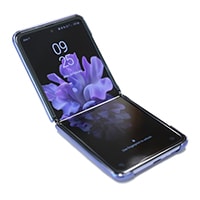Mobile phones are no longer only used for the purpose of making phone calls or texting someone. Today, these devices have become mini-computers that we wear around in our pockets. Smartphones are powered by operating systems, which allow us to perform a large number of tasks – from taking professional-quality photos to sending emails and more.
For a very long time, two major giants have been ruling the market in terms of mobile operating systems – Google and Apple. While Apple’s iOS operating system is solely found on their own mobile devices, Google’s Android operating system is open-source and available to all manufacturers.
Android Versus Alternatives
The two most popular mobile operating systems remain Android and iOS, but there are others that seem to be less noted too. KaiOS and Tizen are still used, and certain Linux distributions also come with a smartphone OS option. Other operating systems include Windows mobile, Symbian, Palm OS, and Web OS. Due to a large number of mobile operating systems, choosing one seems to be a bit tedious. Fortunately, with iOS and Android ruling the market, most people do end up only having to choose between the two.
There are several differences between these two operating systems, but, at the same time, the purpose remains similar – they both allow a smartphone to offer the user access to smart functions. In addition to calls and texts, you can download mobile applications to extend the functionality. Recent reports have found that Android is currently the most popular mobile operating system. In terms of users, Android also outranks iOS and other operating systems that are used in the smartphone industry. The fact that Android is open source contributes to its widespread popularity. Mobile manufacturers are able to utilize this operating system without expensive licensing fees – and the open source license allows the manufacturer to customize the operating system and add their own branding.
There are, however, several other reasons why people are turning to Android as an operating system for smartphones.
Let’s consider a few of the additional advantages that users get when they choose Android:
- With iOS, the transfer of files between a computer and a mobile device can be challenging. Special desktop software is needed, and only certain files can be transferred. Android allows a mobile device to be mounted as a storage system on a computer – making it easy to transfer any type of file.
- There is a significant limit in the customization and personalization options when working with iOS as an operating system. With Android, the user is free to customize almost everything on the operating system. Themes can be installed, for example. With iOS, these functions can only be achieved through a process known as “Jailbreaking,” – which could also cause problems with the phone.
- There is a limited selection of languages supported by iOS when compared to Android. With the Android operating system, users can choose between more than 100 languages. iOS is limited to 40 languages.
- With Android, several alternative app stores can be accessed. This can significantly enhance the selection of apps and games that you can choose from. iOS, however, restricts your access so that you can only use the official Apple App Store to download apps or games.
- Android gives you access to a fully-featured file browser, which allows you to perform a large variety of actions. In addition to the stock file manager, a number of alternative options are also available on the Google Play Store. With iOS, you do get access to the Files app, but functionality is significantly limited when compared to the file manager on Android devices.
- Android devices have a bootloader that can be unlocked, which provides full access to the entire smartphone. This is not something that can be achieved with an iPhone or another device running iOS.
Conclusion
Choosing a smartphone often starts with a question about the brand. Apple fans become used to the features presented by iOS, while other people generally enjoy the functions that Android operating systems offer. There are several advantages that Android continues to offer, which is also why these smartphones still remain a top choice for many individuals.



